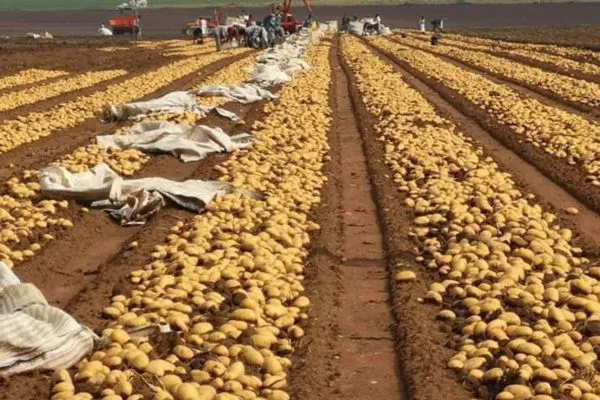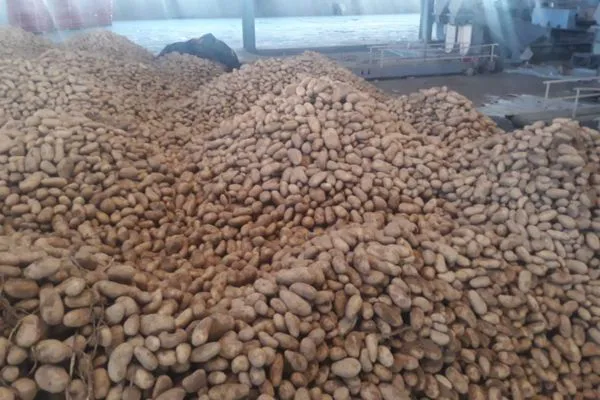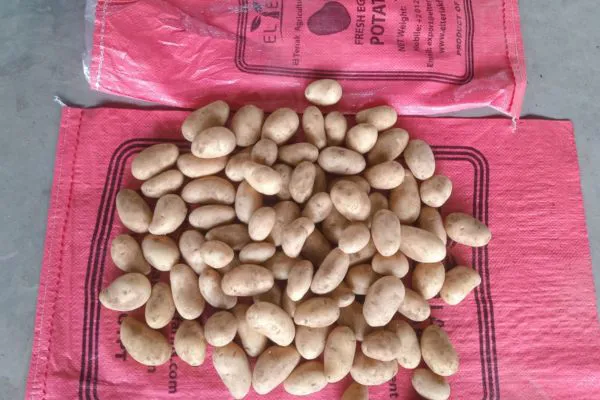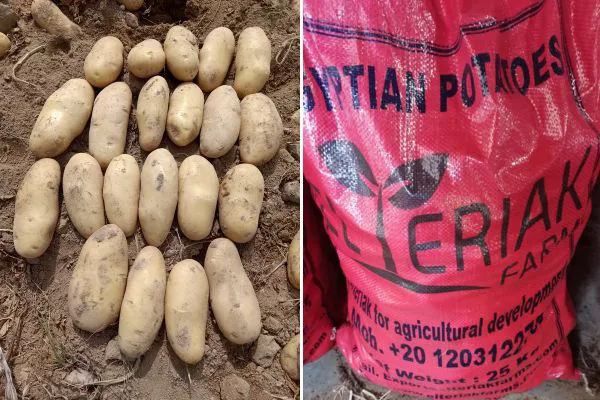This year has been marked by global climate changes that have disrupted the production of potatoes and caused changes in procurement channels. According to Nessem Amgad, export manager of Elteriak Farms, the climate has also impacted Egyptian production, but to a lesser extent than in Europe. This has strengthened the position of Egypt, especially in Spain, according to the producer.

Amgad explains: "We started the season on a good track, without any notable concerns in the production conditions. However, from mid-January, Egypt was impacted by a long cold snap that caused phytosanitary problems and impacted volumes and sizes. That said, we were in a more comfortable position than other potato origins, like France, where the impact of the drought was more brutal."
Amgad continues: "The coastal regions of Egypt, such as Behira, Matamir, Nabaria, Alexandria, and Sahrawy, have suffered the climatic phenomenon we call in Egypt "Nadwa". It consists of a cold snap accompanied by the phytosanitary disease "phytophthora infestans", which ravages the tissues of the tubers in the midst of flowering and causes a lack of nutrition. Volumes were therefore severely impacted, with yields dropping from 22 tons per feddan to 12-13 tons. This has increased our production costs, and the rise in the US dollar rate has exacerbated this increase and caused massive losses. Fortunately, the Egyptian desert regions have not experienced this problem, and the fact that the land there has recently been reclaimed and used for production for the first time has resulted in good yield."

Regarding sizes, this same problem has caused a shrinking of tubers according to Amgad: "We know that the ripening of potatoes takes 120 days, but the fact that the "nadwa" lasted 90-95 days has caused a decrease in sizes in the coastal areas but has had no impact on quality."
"Apart from this problem, we have not had any concerns in the production and marketing conditions," adds Amgad, "In the logistical side for example, which had made our operations difficult last year, we have noticed a great improvement this year, especially in the supply of Eastern Europe and Russia, which was a big concern for us at the beginning of the season."

While Egyptian production has not escaped the problem of climate change unscathed, it has done better than other origins of potatoes, which has opened new markets for Egyptian exporters. Amgad explains: "Europe relies for its potato supply mainly on France and the Netherlands. With the drought that hit France this year, Spain and France have turned to Egypt. The campaign has been very good for us in the Spanish market, which has discovered our potatoes, and customers have been very satisfied. It is an honor for us when our production is appreciated in a new market."
The producer adds: "We continue to progress and expand in the European market, especially since our calendars are not simultaneous with those of the Netherlands, which makes it easier for us to impose ourselves on the market without much competition. We have done well this year in Poland and Slovenia, Belgium, Spain, and Italy, and especially in Spain.

In the pre-season, more producers entered the potato sector, which increased acreage and competition among Egyptian exporters, leading to competitive prices during the season beginning, according to the producer. "But then, prices increased due to the high demand and the increase in production costs. This directly impacted our business with Russia, which significantly reduced its demand due to prices increase."
The rest of the season and the coming years remain promising for Egyptian exports, according to Amgad. "The new climate situation is a golden opportunity that we try to seize to conquer new markets. Despite the climatic conditions in Egypt too, we are very careful in sorting and selecting the potatoes we export, and we have not had any complaints. We hope to strengthen our position, and do so also by adopting new varieties requested by customers, such as the variety Annabelle, "concludes Amgad.
For more information:
Amgad Nessem
Elteriak Farms
Tel: +201 207 976 920
Email: amgad.nessem@elteriakfarms.com
www.elteriakfarms.com
